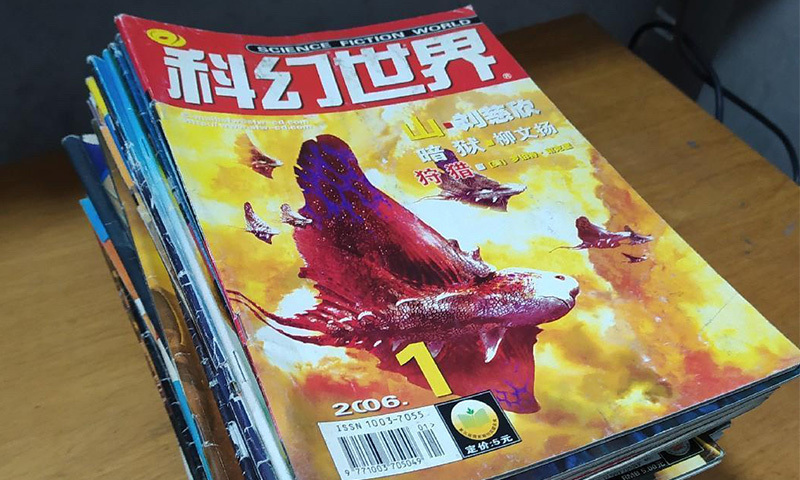
(File photo:weibo)
Chinese sci-fi magazine "Science Fiction World," which is one of the world's most popular sci-fi magazines with a readership of over 1 million, reported a case of plagiarism on Wednesday. It apologized for publishing a novel that its editors later found out had plagiarized the work of US writer Stephen King.
The novel, named "Wuzhu" or "no owner," by writer Li Qingzhi was published in the February issue of the magazine this year, and was also in the running for the Galaxy Awards, the most significant awards in the sci-fi industry in China.
Even though the editors checked the novel before publishing it, they did not realize that it copied the story and some characters from King's story "Trucks." Readers of the magazine later pointed it out.
"This novel's contribution fee and award qualification have all been withdrawn. The writer was also disqualified from the awards, and other works have been rejected," the magazine said on its Sina Weibo account.
Li and King have not responded yet. Some netizens found that besides this novel, Li also copied two other stories by King from his book, "Night Shift."
Besides condemning the writer's plagiarism, some netizens criticized the editors of the magazine for allowing the novel to be published and nominated for awards.
"How could the editors not discover the plagiarism? Did they work seriously?" one netizen asked.
But other netizens supported the magazine and said the writer is the one who is really to blame.
"King has written hundreds of stories. Few people can read them all. This is just a mistake and the magazine apologized sincerely," another netizen wrote.
The magazine explained in another Sina Weibo post why the editors did not discover the plagiarism.
"Literary works are different from academic papers and do not have a database allowing editors to find cases of plagiarism. Our editors cannot read everything," it said.
The post suggested that the whole industry should build a system of zero tolerance for plagiarism in order to reduce such behavior. "That's why we decided never to publish any work by plagiarizers."
Famed Chinese sci-fi writer Liu Cixin's masterpiece "The Three-Body Problem" was first serialized in Science Fiction World.


